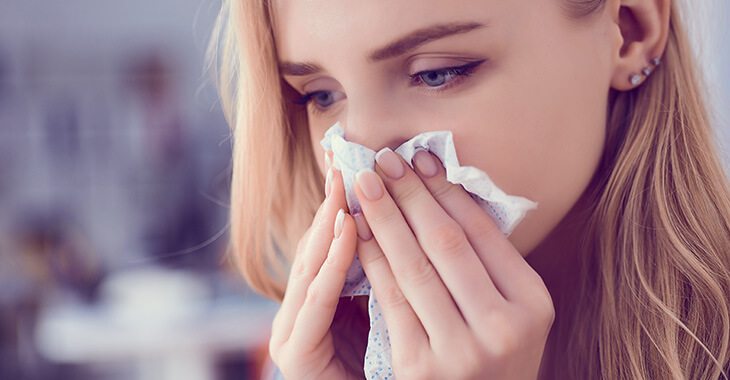What Are Foods That Cause Ear Wax Build Up?

Ear wax, or cerumen, is your body’s natural way of cleaning and protecting your ears. But when too much builds up, it can cause clogged ears, discomfort, or even hearing issues. Surprisingly, your diet can play a role in how much ear wax your body produces. What are the foods that cause ear wax build up?
The Link Between Food and Ear Wax
While ear wax is mainly influenced by genetics and hygiene, certain foods can contribute to inflammation and excessive oil production—two factors that may increase wax buildup. Some people are more sensitive to dietary triggers than others.
If you’re prone to ear blockages, learning about foods to avoid with clogged ears could help reduce the frequency of buildup and keep your ears clear.
1. Dairy Products
Milk, cheese, yogurt, and other dairy items are common culprits. They can increase mucus and oil production in the body, which may contribute to wax accumulation. Dairy may also trigger allergic responses in sensitive individuals.
If you’re experiencing frequent ear blockages, consider cutting back on dairy for a few weeks to see if symptoms improve.
2. Processed Sugars
Foods high in processed sugar, such as candies, baked goods, and soft drinks, can trigger inflammation throughout the body. Inflammatory responses may stimulate your sebaceous glands—including those in the ears. Over time, this could lead to thicker or more frequent wax buildup.
Limiting sugar can benefit your overall health, not just your ears.
3. Fried and Greasy Foods
Oily foods like french fries, fried chicken, and potato chips can also impact your ear health. These foods may increase oil production in your skin and glands. This excess oil can contribute to wax buildup in your ear canals.
If you’re dealing with ear issues, fried foods should be on your list of foods to avoid with clogged ears.
4. Gluten (For Some Individuals)
People with gluten sensitivity or celiac disease may experience inflammation and increased mucus production when consuming wheat-based foods. This response may worsen sinus congestion and lead to clogged ears.
If you notice ear fullness or wax buildup after eating gluten, try reducing or eliminating it and tracking your symptoms.
5. High-Sodium Foods
Salty foods can cause the body to retain water, leading to swelling in the nasal and ear passages. Common high-sodium offenders include:
- Processed meats
- Canned soups
- Frozen meals
- Snack chips
Swollen passages can restrict ear drainage, contributing to clogged ears or trapped wax.
6. Alcohol
Alcohol is dehydrating and inflammatory. It can thicken mucus and affect your body’s ability to flush out toxins, including excess ear wax. Heavy alcohol use may also impact circulation and ear function. Cutting back may improve ear health and reduce symptoms like pressure or hearing dullness.
7. Caffeine
Excess caffeine from coffee, soda, or energy drinks can contribute to dehydration. Dehydrated ear canals may produce more wax in response to dryness. If you rely on multiple cups of coffee per day, it might be worth reducing your intake. Hydration plays a key role in regulating wax production.
8. Eggs (in Some People)
For individuals with an egg sensitivity or allergy, eating eggs can lead to inflammatory responses. This may cause excess mucus and indirectly lead to more ear wax. Eggs aren’t a problem for everyone, but pay attention to how your body reacts.
If you’re dealing with clogged ears often, an elimination diet may help identify triggers.
9. Red Meat
High-fat animal proteins like red meat can cause increased oil production in the body. Combined with inflammation from saturated fats, this may lead to wax accumulation. Choosing lean meats or plant-based proteins when possible can help minimize ear wax production.
Reducing saturated fat intake benefits your cardiovascular and ear health alike.
10. Chocolate
While delicious, chocolate contains sugar, dairy, and caffeine—all ingredients linked to wax build-up. For sensitive individuals, it’s a triple-threat food. If you experience fullness in the ears after chocolate, it may be worth avoiding. Moderation is key, especially if you’re prone to clogs.
What to Eat Instead
Just as some foods may worsen ear wax buildup, others can help maintain healthy ear function. Focus on:
- Fresh fruits and vegetables
- Lean proteins
- Whole grains
- Omega-3 fatty acids
- Lots of water
These support immune health and reduce inflammation, which can prevent wax-related ear issues.
Lifestyle Tips for Managing Ear Wax
In addition to watching what you eat, follow these practices to reduce ear wax problems:
- Avoid inserting cotton swabs into the ear canal
- Use ear drops as needed to soften wax
- Dry ears gently after showering
- See a doctor for safe removal if buildup persists
- Keeping your ears clean and eating a balanced diet goes a long way.

Understanding the connection between diet and ear wax can help you avoid discomfort and hearing issues. While not everyone is affected by the same foods, monitoring your intake can reveal patterns and potential triggers.
By cutting back on foods to avoid with clogged ears, you may experience fewer ear blockages and better ear health overall.
The information provided on this website, including text, graphics, images, and other materials, is intended solely for informational purposes and should not be used as a substitute for professional medical advice, diagnosis, or treatment.




)